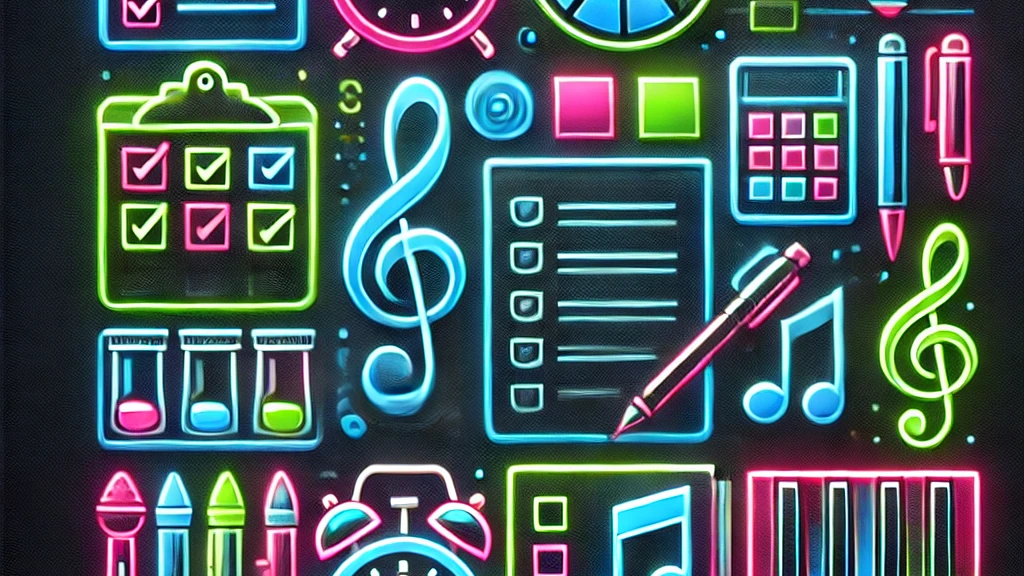
Top Tools and Apps for Neurodivergents: A Neurodivergent Developer’s Guide
Top Tools and Apps for Neurodivergents: A Neurodivergent Developer’s Guide
Being someone with autistic ADHD, I’ve learned that finding the right tools can be a game-changer. Whether it’s staying organised, maintaining focus, or managing the flood of thoughts that never seem to stop, having the right apps makes life so much easier. Over the years, I’ve come across some top-rated tools that actually work for brains like mine, so if you’re neurodivergent—or supporting someone who is—these apps are definitely worth checking out.
1. Notion
Key Feature: Customisable, all-in-one workspace
Why it Helps: If your thoughts tend to be all over the place, Notion is a great way to create order out of chaos. It’s completely customisable, so whether you’re managing work projects, your personal life, or jotting down random ideas, Notion lets you build the system that works best for you. I use it to capture everything from fleeting thoughts to long-term goals, and it really helps me stay on top of things.
2. Todoist
Key Feature: Simple yet powerful task manager
Why it Helps: Managing tasks with ADHD can feel impossible at times, but Todoist helps break things down into manageable steps. It lets you prioritise tasks, set deadlines, and keep track of everything without getting overwhelmed. Plus, it syncs with Google Calendar, so I always know what’s next on my list without needing to constantly check my phone.
3. Focus@Will
Key Feature: Music designed to boost focus
Why it Helps: Distractions are the enemy, and Focus@Will offers music that’s scientifically designed to help improve focus. It’s especially useful for people with ADHD, providing soundtracks that keep you in the zone without pulling you away. It’s been a huge help when I need to block out distractions and dive into deep work.
4. Brain.fm
Key Feature: AI-generated music for productivity, relaxation, and sleep
Why it Helps: Brain.fm is another music app, but with a twist—it uses AI to create music specifically for different states, like focusing, relaxing, or sleeping. This is a big deal for people with sensory issues or trouble winding down. Whether I need to calm down after a busy day or stay laser-focused, Brain.fm tailors the experience to exactly what I need.
5. Otter.ai
Key Feature: Real-time transcription and note-taking
Why it Helps: Taking notes during meetings or lectures can be a challenge, especially if you’re trying to focus on what’s being said. Otter.ai records and transcribes conversations in real-time, so you can go back and review everything later. It’s a must-have for anyone who struggles to process information and take notes simultaneously.
6. Forest
Key Feature: Gamified focus sessions
Why it Helps: Staying focused for extended periods can be tough, but Forest turns it into a game. You plant a virtual tree during your focus session, and it grows the longer you stay on task. If you get distracted, the tree dies—simple, but surprisingly motivating! It’s a great way to stay engaged and avoid distractions.
7. TimeTimer
Key Feature: Visual countdown timer
Why it Helps: Time blindness is a common issue for many neurodivergent people, and TimeTimer provides a visual countdown to help you keep track of time. Whether it’s staying on schedule or remembering to take breaks, this tool makes it much easier to manage your time without constantly watching the clock.
8. SimpleMind
Key Feature: Mind mapping
Why it Helps: If your thoughts don’t always follow a straight line, SimpleMind is the perfect way to get everything out in a visual format. It’s a mind mapping tool that lets you brainstorm, connect ideas, and organise them however you like. It’s great for those of us who need to see the bigger picture before we can break things down.
9. Grammarly
Key Feature: AI-powered writing assistant
Why it Helps: Writing doesn’t always come easily, especially when your brain moves faster than your fingers. Grammarly helps by catching errors and improving the tone of your writing, so you don’t have to worry about grammar or sounding too blunt. It’s like having a second set of eyes on everything you write.
10. Trello
Key Feature: Visual task and project management
Why it Helps: Trello uses a visual board-and-card system to organise tasks, which is perfect if you think in a more non-linear way. You can move tasks between columns, add new ones, and see your progress at a glance. It’s much less rigid than traditional project management tools, and it works really well for keeping both work and personal tasks in order.
Conclusion
If you’re neurodivergent, finding tools that fit how your brain works can make a world of difference. Whether it’s focusing, staying organised, or handling the sensory overload of everyday life, these apps have been lifesavers for me. The key is finding what works for you—try a few of these out, and see how they fit into your life.
Got any favourites of your own? Drop them in the comments—I’m always keen to discover new ways to optimise my workflow!
About Me
I’m a senior React and React Native developer who’s recently embraced my neurodivergent identity. Diagnosed with autistic ADHD, I’ve spent years navigating the tech industry while coming to terms with the strengths and challenges that come with being neurodivergent. Through my blog, I aim to raise awareness about neurodiversity, offer tips and tools for fellow developers, and share insights from my own experience.
If you’re interested in reading more about my journey, check out my blog at neurodisruptive.org.